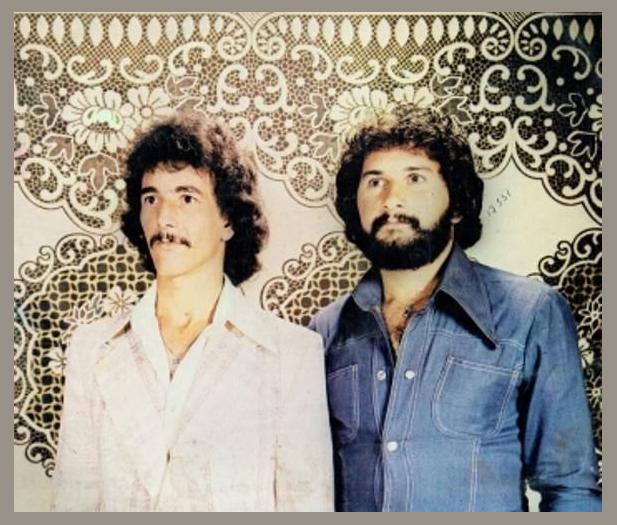 Poliglota e Porta Voz
Poliglota e Porta Voz
Poliglota e Porta Voz: A Tapestry of Sounds and Societal Commentary
Formation and Musical Journey
Poliglota e Porta Voz emerged in 2000 as a collective of musicians united by their passion for blending diverse musical genres and tackling social issues through their lyrics. The band's name, which translates to "Polyglot and Spokesperson," epitomizes their ability to express themselves in multiple languages and act as a voice for the voiceless.
Members and Collaborators
The core members of Poliglota e Porta Voz include Daniel Martins, Pedro Lobo, and Rosa Luz. Over the years, they have collaborated with a multitude of renowned artists from Brazil and beyond, such as Chico César, Gilberto Gil, and Manu Chao.
Discography and Musical Style
Poliglota e Porta Voz has released several critically acclaimed albums, including "O Mundo Se Acaba Amanhã" (2003), "Ação Direta" (2006), and "Ouro de Tolo" (2014). Their musical style is an eclectic blend of Brazilian rhythms, including samba, bossa nova, and funk, fused with elements of reggae, rock, and hip-hop.
Lyrics and Social Commentary
The lyrics of Poliglota e Porta Voz are known for their incisive social commentary and their ability to challenge societal norms. They address issues such as poverty, inequality, racism, and the struggle for human rights. Their songs often serve as a platform for marginalized voices and encourage collective action for change.
"Presente de Formatura"
One of the band's most iconic songs is "Presente de Formatura," released in 2008. It is a bittersweet ballad that reflects on the challenges faced by graduates entering the workforce and the complexities of finding fulfillment in a world marked by economic disparities and social injustice.
Challenges and Controversies
Throughout their career, Poliglota e Porta Voz has faced criticism for their outspoken views and their willingness to tackle sensitive topics. Their song "Somos Todos Iguais" (We Are All Equal), which denounces homophobia, sparked controversy and led to protests from conservative groups.
Legacy and Impact
Despite the challenges, Poliglota e Porta Voz has become a respected and influential voice in contemporary Brazilian music. Their ability to blend musical genres and engage in social commentary has earned them widespread recognition and a loyal following. Their music continues to inspire and empower audiences, reminding them that art can be a catalyst for social change.
Formation and Musical Journey
Poliglota e Porta Voz emerged in 2000 as a collective of musicians united by their passion for blending diverse musical genres and tackling social issues through their lyrics. The band's name, which translates to "Polyglot and Spokesperson," epitomizes their ability to express themselves in multiple languages and act as a voice for the voiceless.
Members and Collaborators
The core members of Poliglota e Porta Voz include Daniel Martins, Pedro Lobo, and Rosa Luz. Over the years, they have collaborated with a multitude of renowned artists from Brazil and beyond, such as Chico César, Gilberto Gil, and Manu Chao.
Discography and Musical Style
Poliglota e Porta Voz has released several critically acclaimed albums, including "O Mundo Se Acaba Amanhã" (2003), "Ação Direta" (2006), and "Ouro de Tolo" (2014). Their musical style is an eclectic blend of Brazilian rhythms, including samba, bossa nova, and funk, fused with elements of reggae, rock, and hip-hop.
Lyrics and Social Commentary
The lyrics of Poliglota e Porta Voz are known for their incisive social commentary and their ability to challenge societal norms. They address issues such as poverty, inequality, racism, and the struggle for human rights. Their songs often serve as a platform for marginalized voices and encourage collective action for change.
"Presente de Formatura"
One of the band's most iconic songs is "Presente de Formatura," released in 2008. It is a bittersweet ballad that reflects on the challenges faced by graduates entering the workforce and the complexities of finding fulfillment in a world marked by economic disparities and social injustice.
Challenges and Controversies
Throughout their career, Poliglota e Porta Voz has faced criticism for their outspoken views and their willingness to tackle sensitive topics. Their song "Somos Todos Iguais" (We Are All Equal), which denounces homophobia, sparked controversy and led to protests from conservative groups.
Legacy and Impact
Despite the challenges, Poliglota e Porta Voz has become a respected and influential voice in contemporary Brazilian music. Their ability to blend musical genres and engage in social commentary has earned them widespread recognition and a loyal following. Their music continues to inspire and empower audiences, reminding them that art can be a catalyst for social change.